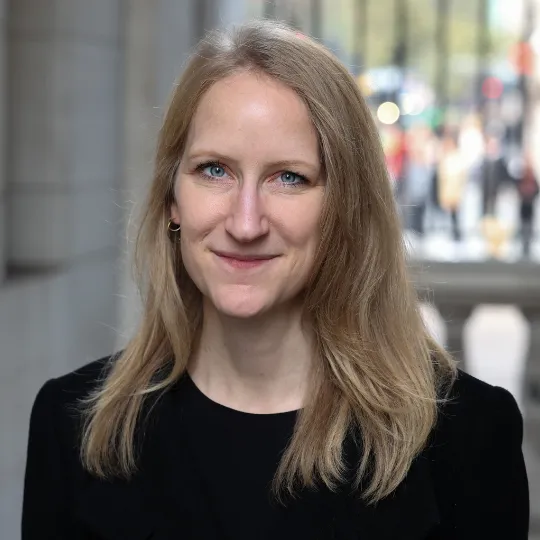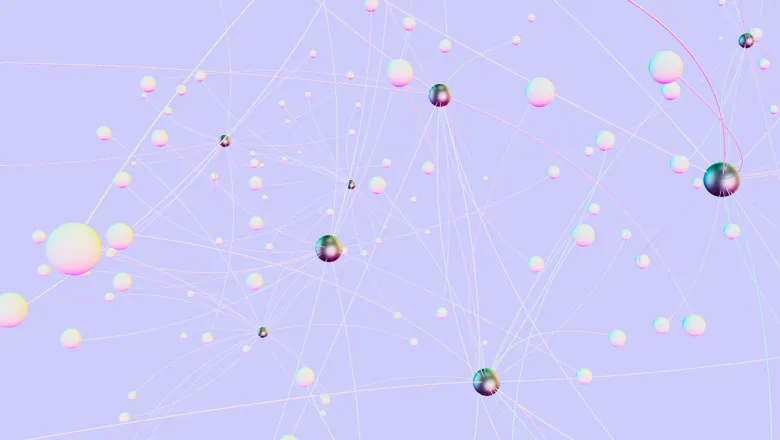
Dr Stephanie Diepeveen
Senior Lecturer in Global Digital Politics
Contact details
Pronouns
she/her
Biography
Stephanie’s research sits at the intersection of power, digital infrastructure and spaces. Her interests span both the (geo)politics of digital infrastructure, and possibilities of relations and spaces that emerge through their development and use. She is particularly interested in perspectives and experiences within and from the Global South. Stephanie is currently co-investigator on an ESRC large grant on language, conflict and conflict resolution in Africa, a four-year interdisciplinary project led by the University of Essex.
Stephanie joined the Department of Digital Humanities in August 2024. She is also a Senior Research Associate with the Intellectual Forum at Jesus College, Cambridge, a Research Associate of ODI, and an Expert with StateUp, a research, data and training company focused on green and technological transitions. Stephanie holds a PhD from the University of Cambridge. She has previously worked in research, teaching and research evaluation at the University of Cambridge, RAND Europe, UKRI and ODI.
Research Interests and PhD Supervision
- Politics of data and digital public infrastructure
- Mis/disinformation, AI and the (digital) public sphere
- Digitalisation and datafication in Africa
- Conflict and crisis-affected contexts
Stephanie welcomes applicants from potential PhD candidates interested in political inquiries into the above topics, as well as perspectives within and across the Global South.
Teaching
Stephanie teaches at both undergraduate and postgraduate levels on digital politics, decolonisation and knowledge production, the politics of Africa, and media, culture and society. She teaches on aspects of digitalisation and data from global perspectives, bringing a critical lens to forms of knowledge production and research methods.
Expertise and Public Engagement
From 2021-2024, Stephanie led the Digital Societies Initiative at ODI, a global affairs think tank. This involved research, convening and policy engagement on digitalisation across ODI’s work in politics, gender studies, humanitarian studies and social welfare. In 2023, Stephanie was appointed as co-chair of the T20 Taskforce, Our Common Digital Future, under India’s G20 Presidency. She continues to engage in multilateral and donor conversations on digital public infrastructure and data, including around Brazil’s G20 Presidency, the Global Digital Compact, and for the Commission on Science and Technology for Development (UNCTAD). She has co-authored policy briefs for Brazil and India’s G20 Presidencies, on Interoperability and Inclusive and Equitable Public Service Delivery (2024), and Mitigating forms of Exclusion around Digital Public Infrastructure (2023).
Stephanie’s research and policy engagement is underpinned by active partnership, including with the University of the Witwatersrand (South Africa), Aapti Institute (India), Digital Futures Lab (India), Data Privacy Brazil and Somali Public Agenda (Somalia).
Stephanie has also had a leading role on multiple previous research and networking projects. She was Principal Investigator for an Internews and StateUp project on climate-change misinformation in humanitarian contexts; Project Lead for a McGovern Foundation-funded project on Technology and Accountability in the Humanitarian Sector; Co-Investigator on a UKRI-funded network project Datafication and Digital Rights in East Africa; and Co-Principal Investigator on the research project, Conspiracies, COVID-19 and Social Media in Africa funded by the Cambridge Alborada Fund. Across these projects, Stephanie has been involved in bringing together researchers, civil society and local media actors to discuss issues of justice, inclusion and equality around digital transformations, with a focus on sharing and promoting ideas and experiences within the Global South.
Selected Publications
- Diepeveen, S. (2021). Searching for a New Kenya: Social Media and Politics in the streets of Mombasa. Cambridge: Cambridge University Press. Reviewed in Commonwealth and Comparative Politics, African Journalism Studies, Journal of Modern African Studies, and African Studies Quarterly.
- Gagliardone, I., Pohjonen, M., Diepeveen, S., & Olaniran, S. (2023). Clones and zombies: rethinking conspiracy theories and the digital public sphere through a (post)-colonial perspective. Information, Communication & Society, 26(12), 2419-2438.
- Chonka, P., Diepeveen, S., & Haile, Y. (2022). “Algorithmic power and African indigenous languages: search engine autocomplete and the global multilingual Internet.” Media, Culture & Society, 01634437221104705.
- Gagliardone, I, Diepeveen, S. et al. (2021). “Demystifying the COVID-19 infodemic: Conspiracies, context and the agency of users.” Social Media + Society.Srinivasan, S., Diepeveen, S., & Karakwaivanane, G. (2019). “Publics in Africa in a Digital Age.” Journal of Eastern African Studies, 13 (1), 2-17.
Research

Centre for Digital Culture
The Centre for Digital Culture at King’s College London is an interdisciplinary research centre promoting research and debate on digital culture

Global Digital Cultures Research Group
do local practices of engagement with the digital circulate regionally and around the world, and how do they change during their travels? These are some of the questions that we ask in the Global Digital Cultures Research Group, approaching them from different disciplinary and methodological traditions, and focusing on different countries and regions, but also on global phenomena and their local articulations.
Events

Decolonisation in the Age of AI
A keynote lecture and panel discussion about decolonisation and AI.
Please note: this event has passed.

Power, Representation and GenAI: A critical exploration of AI imaginaries across language and place
The Global Digital Cultures Research Group in the Department of Digital Humanities at King's hosts Dr Stephanie Diepeveen, speaking on "Power, Representation...
Please note: this event has passed.
Research

Centre for Digital Culture
The Centre for Digital Culture at King’s College London is an interdisciplinary research centre promoting research and debate on digital culture

Global Digital Cultures Research Group
do local practices of engagement with the digital circulate regionally and around the world, and how do they change during their travels? These are some of the questions that we ask in the Global Digital Cultures Research Group, approaching them from different disciplinary and methodological traditions, and focusing on different countries and regions, but also on global phenomena and their local articulations.
Events

Decolonisation in the Age of AI
A keynote lecture and panel discussion about decolonisation and AI.
Please note: this event has passed.

Power, Representation and GenAI: A critical exploration of AI imaginaries across language and place
The Global Digital Cultures Research Group in the Department of Digital Humanities at King's hosts Dr Stephanie Diepeveen, speaking on "Power, Representation...
Please note: this event has passed.
